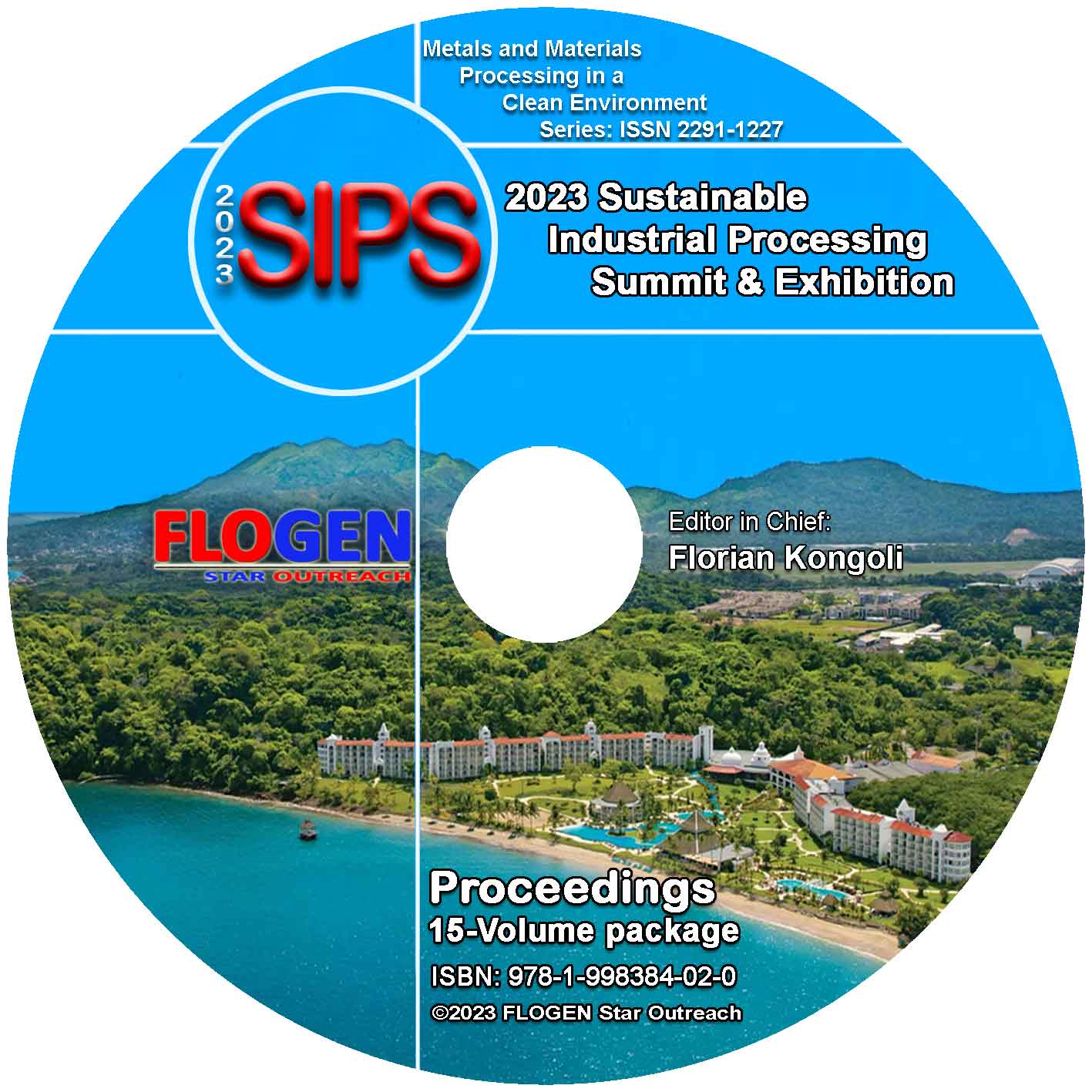2023-Sustainable Industrial Processing Summit
SIPS2023 Volume 10. Torem Intl. Symp/ Mineral Processing
| Editors: | F. Kongoli, G. N. Anastassakis, A. Abhilash, H. R. Kota, A. G. Merma, E. Souza, C.H. Sampaio, R. Souza, M.M. Vellasco, F. Zeballos, J. Sokolovic |
| Publisher: | Flogen Star OUTREACH |
| Publication date: | 21 December 2023 |
| Pages: | 142 pages |
| ISBN: | 978-1-989820-90-2 (CD) |
| ISSN: | 2291-1227 (Metals and Materials Processing in a Clean Environment Series) |

CD shopping page
EXPLORING PEDAGOGIES OF K-12 STEM EDUCATION AND EDUCATION FOR SUSTAINABILITY
Jessica Cordaro1;1UNIVERSITY OF WISCONSIN-STEVENS POINT, Stevens Point, United States;
Type of Paper: Regular
Id Paper: 287
Topic: 5
Abstract:
Due to the current climate crisis, growing social inequities, and continued exploitation of the environment and its inhabitants, there is a dire need to incorporate education for sustainability (EfS) into mainstream education globally. STEM education is a popular educational initiative that has been integrated into curricula worldwide, which has some overlap with the pedagogies as EfS. A scoping literature review was conducted to examine the parallels between STEM education and EfS pedagogies in K-12 education. A total of 35 articles from 2012 to 2022 were reviewed. When comparing both sets of literature, the use of digital technology was a top pedagogical practice in both STEM and EfS. While design-based instruction was a common element of STEM education literature, it was only found in one of the EfS studies. Digital-technology based instruction was the most common pedagogy in the EfS literature followed by inquiry-based instruction and collaborative methods. Future research can be conducted in these areas to examine educator effectiveness at integrating EfS and STEM education by using these areas as bridges between the educational initiatives, allowing EfS to become more mainstream in K-12 education globally.
Keywords:
Curriculum; Education; Educational Strategy; Sustainability; Teacher EducationReferences:
[1] P21 Partnership for 21st-century Learning. (2019). Framework for 21st-century Learning Definitions. Battelle for Kids. https://static.battelleforkids.org/documents/p21/P21_Framework_DefinitionsBFK.pdf[2] UNESCO. (2017). Education for Sustainable Development Goals Learning Objectives. https://www.iau-hesd.net/sites/default/files/documents/247444e.pdf
[3] Martin-Paez, T., Aguilera, D., Perales-Palacios, F. J., & Vilchez-Gonzalez, J. M. (2019). What are we talking about when we talk about STEM education? A review of literature. Science Education, 103(4), 799–822. https://doi.org/10.1002/sce.21522
[8] McLoughlin, E., Butler, D., Kaya, S., & Costello, E. (2020). STEM education in schools: What can we learn from the research? (ATS STEM Report #1). Dublin City University. https://doi.org/10.5281/zenodo.3673728
[9] Corres, A., Rieckmann, M., Espasa, A., & Ruiz-Mallen, I. (2020). Educator competences in sustainability education: A systematic review of frameworks. Sustainability, 12(1958). http://dx.doi.org/10.3390/su12239858
[10] Redman, A., & Wiek, A. (2021). Competencies for advancing transformations towards sustainability. Frontiers in Education, 6(785163), 1–11. https://doi.org/10.3389/feduc.2021.785163